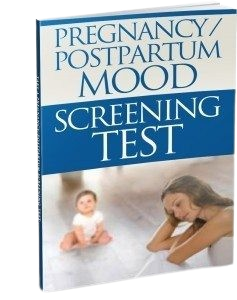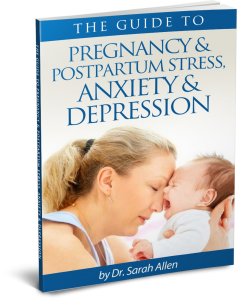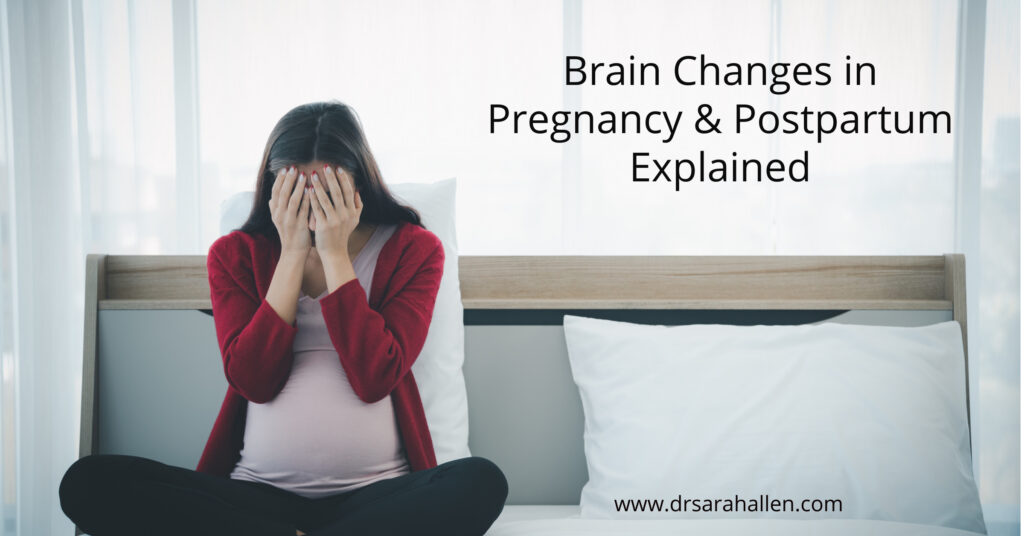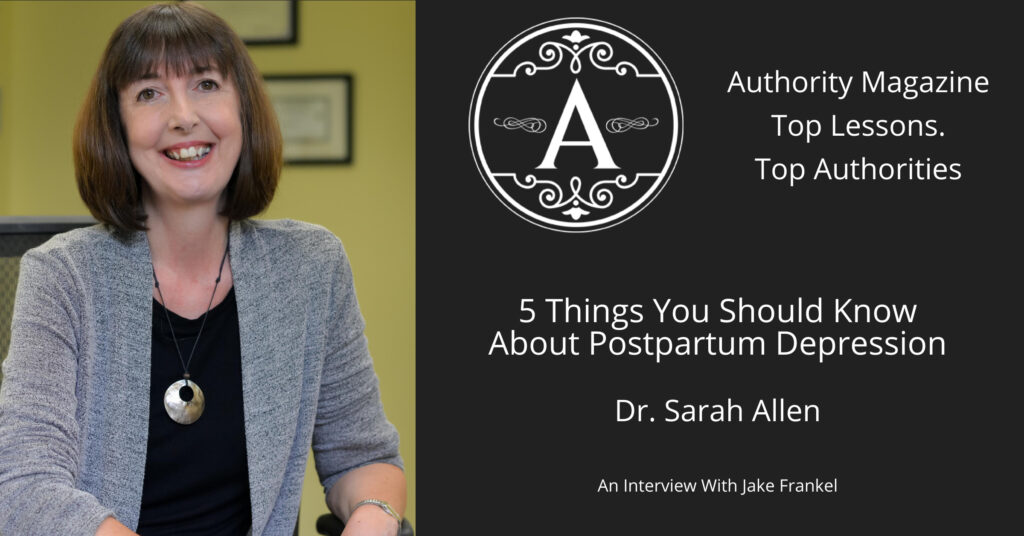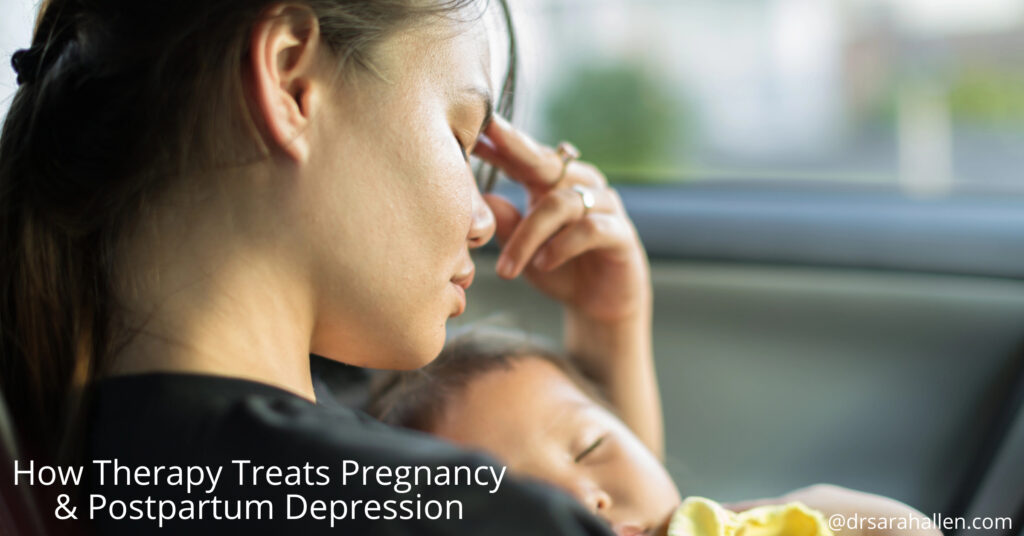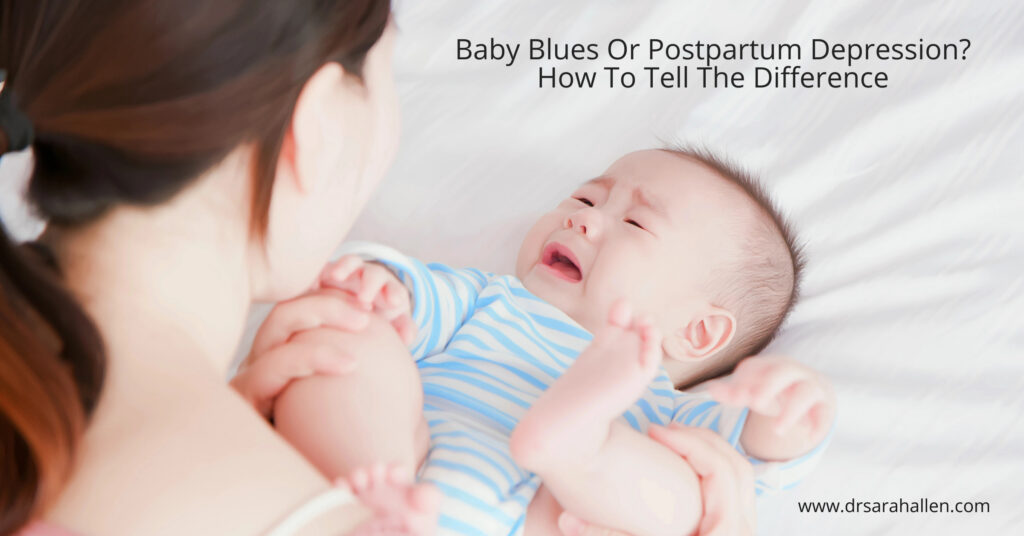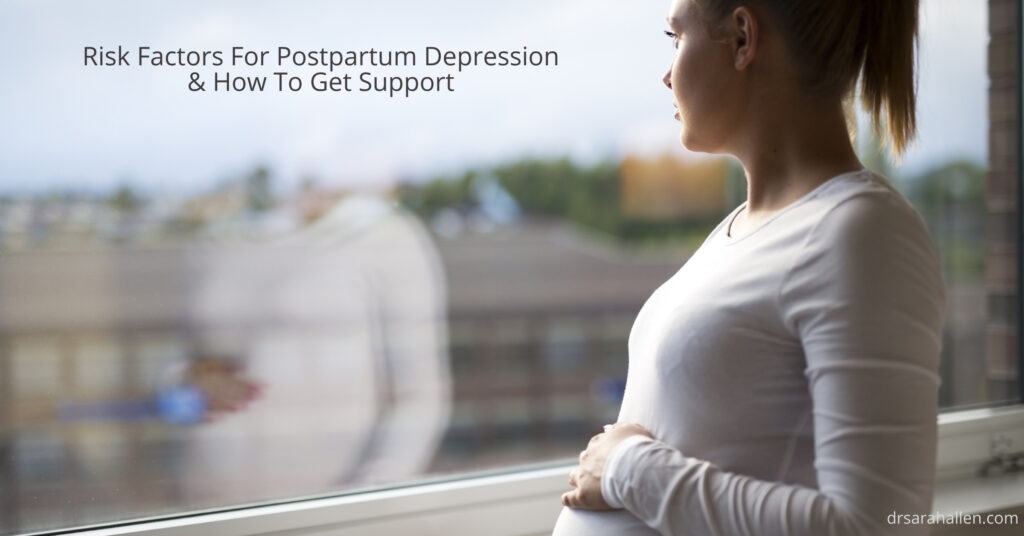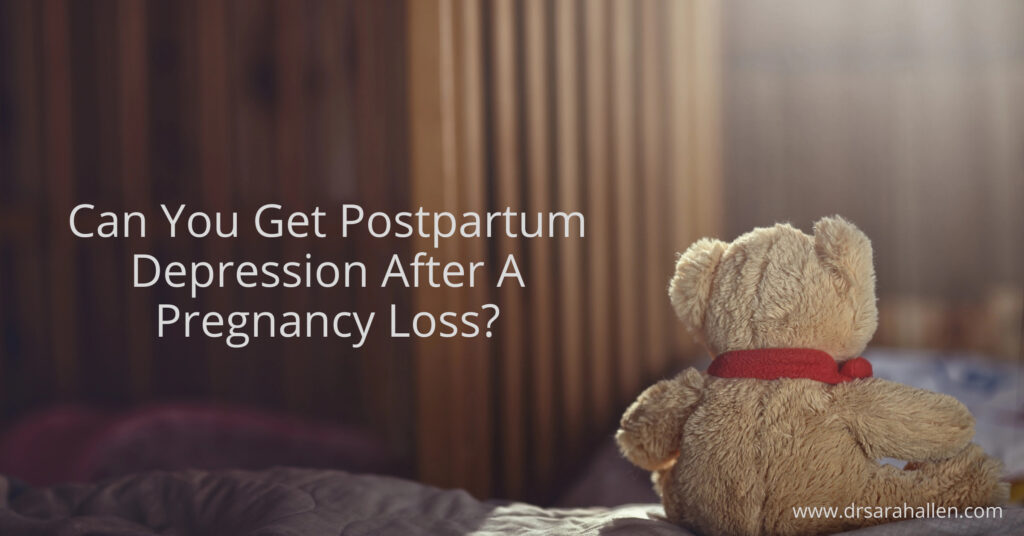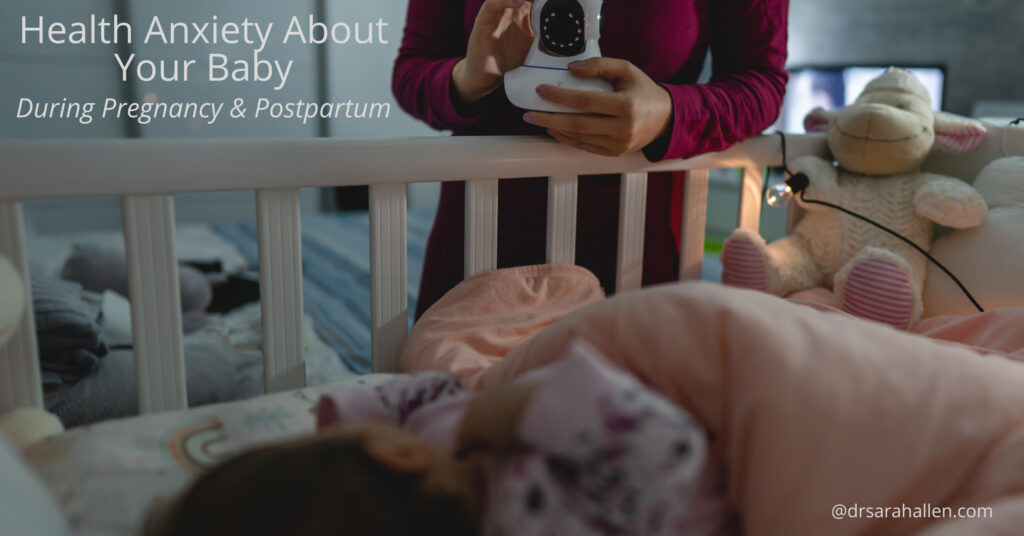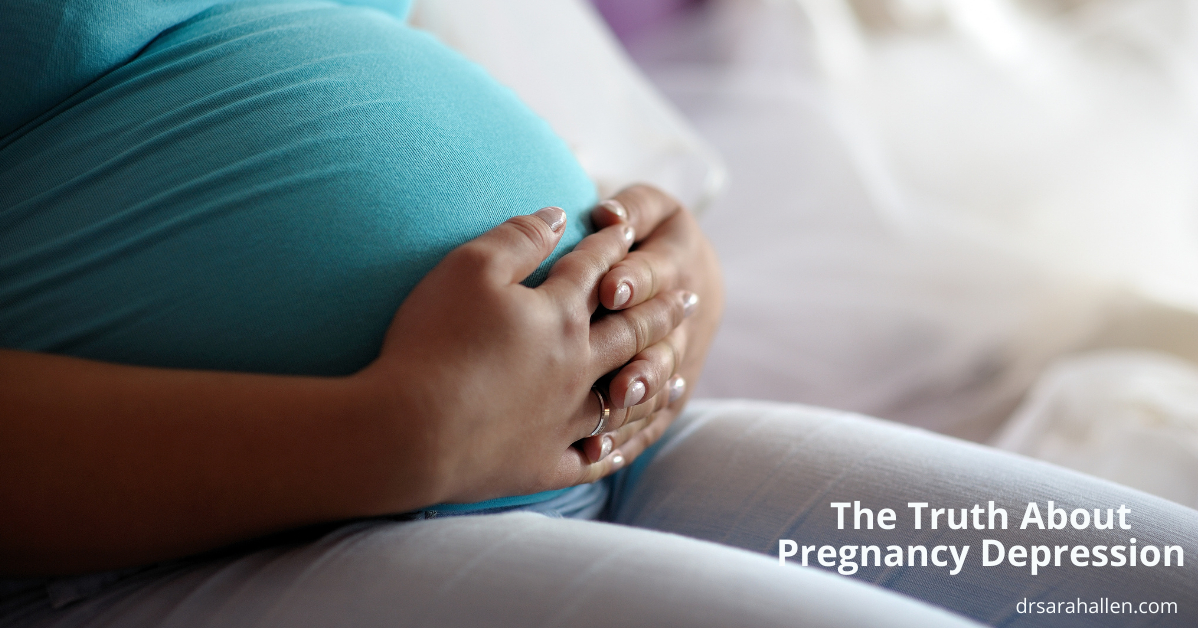
Pregnancy is often portrayed as a time of great joy and anticipation. But for some expectant mothers, it can also be a period of unexpected emotional challenges, including depression.
Most people are familiar with, or at least have heard of, Postpartum Depression (PPD) now. This wasn’t the case when I first moved to the USA 25 years ago but there have been great strides in awareness and provision of resources for new moms in the past few years and there is a growing body of research focusing on emotions during pregnancy now and this is good news for all the pregnant women who feel so alone for not enjoying their pregnancy the way they thought they would.
Studies are showing that approximately 15% of pregnant women experience depression. Research is also finding something that I have frequently seen in my clinical practice, pregnancy depression is just as common as postpartum depression.
What is Pregnancy Depression?
Pregnancy depression, often referred to as antenatal depression or prenatal depression, is a type of clinical depression that can affect women during pregnancy. It encompasses a range of emotional and physical symptoms that can have far-reaching effects on both the mother and the unborn child.
Symptoms may include:
- Persistent feelings of sadness or emptiness
- Lack of interest in activities usually enjoyed
- Changes in appetite or sleep patterns
- Anxiety and irritability
- Feelings of guilt or worthlessness
- Difficulty concentrating
- Thoughts of harming oneself or the baby
Understanding and acknowledging these symptoms is the first step toward getting proper care and support.
Causes and Risk Factors
- Relationship problems
- Family or personal history of depression
- Infertility treatments
- Previous pregnancy loss
- Stressful life events
- Complications in pregnancy
- History of abuse or trauma
- Significant hormonal shifts
Effects on the Mother and Baby
The impact of pregnancy depression is two-fold, influencing both maternal health and fetal development. If left untreated, depression during pregnancy can lead to poor nutrition, drinking, smoking, and suicidal behavior, all of which can put a pregnancy at risk. Moreover, it can contribute to a higher likelihood of postpartum depression and complications during labor.
Seeking Help and Support
Recognizing the signs of pregnancy depression is critical. It’s equally important to communicate any concerns with healthcare providers and loved ones. Treatment options for pregnancy depression include therapy, medication, and other interventions that can be safely used during pregnancy. Consult with a healthcare provider to determine the best course of action.
Self-Care Strategies
Incorporating self-care practices into your daily routine can significantly improve symptoms of pregnancy depression. Focus on maintaining a healthy lifestyle by:
- Eating a nutritious diet
- Engaging in regular, gentle exercise
- Prioritizing sleep and rest
- Connecting with supportive individuals such as friends, family, or others in support groups
- Practicing relaxation techniques like prenatal yoga, meditation, or breathing exercises to manage stress
Remember, self-care is not selfish; it’s an essential part of maintaining both your physical and mental wellbeing for you and your baby
How Can Therapy For Pregnancy Depression Help?
Therapy can be a highly effective treatment for pregnancy depression. Not only does it provide a safe and supportive space to express and process emotions, but it also helps individuals develop coping strategies and skills to manage symptoms. Here are some ways therapy can aid in the treatment of pregnancy depression:
Identifying Triggers and Underlying Issues
A therapist can help you identify any underlying issues or triggers that may be contributing to your pregnancy depression. By understanding these factors, you can develop more effective ways of coping and managing symptoms.
Providing Emotional Support
Having a safe and non-judgmental space to talk about your feelings can provide much-needed emotional support during pregnancy depression. A therapist can offer validation, empathy, and guidance as you navigate your emotions.
Developing Coping Strategies
Therapy can equip you with valuable coping strategies to manage symptoms like anxiety, low mood, and stress. These may include cognitive-behavioral techniques, mindfulness practices, or relaxation techniques.
Strengthening Relationships
Pregnancy depression can strain relationships with loved ones due to changes in emotions and behaviors. Therapy can help individuals communicate more effectively and address any relationship issues that may be contributing to their depression.
Preparing for Postpartum
Therapy can also help individuals prepare for postpartum by addressing concerns and fears about the upcoming changes in their life. Additionally, a therapist can provide resources and support for managing postpartum depression if it occurs.
Remember, seeking therapy is not a sign of weakness or failure, but rather a brave and proactive step towards managing your mental health during pregnancy. If you are experiencing pregnancy depression, consider reaching out to a therapist for support and guidance. Remember that you do not have to face this alone and there is help available for you.
What Types of Therapy Help Pregnancy Depression?
There are many different types of therapy that can be beneficial for individuals with pregnancy depression.
Therapy for pregnancy depression often involves cognitive-behavioral therapy (CBT), which helps individuals identify and change negative thought patterns that contribute to their depression. It can also include interpersonal therapy, where the focus is on improving relationships and communication skills.
If you’re experiencing symptoms of pregnancy depression, know that you are not alone, and it’s nothing to be ashamed of. This condition is treatable, and with the right support and care, you can manage your symptoms and focus on preparing for the arrival of your new baby. Please reach out for help, explore treatment options, and embrace self-care during this pivotal time. Remember, your health and wellbeing are paramount for both you.

Dr. Sarah Allen has 25+ years of experience in private practice helping women to transition to being the mom they want to be. She is the Founding Director of the statewide non-profit Postpartum Depression Alliance of IL. She also specializes in pregnancy loss & infertility & has published research on postpartum depression and traumatic childbirth.
If you would like to work with Sarah, please phone her at 847 791-7722 or on the form below.
If you would like to read more about me and my areas of specialty, please visit Dr. Sarah Allen Bio. Dr. Allen’s professional license only allows her to work with clients who live in IL & FL & the UK and unfortunately does not allow her to give personalized advice via email to people who are not her clients.
Dr. Allen sees clients in person in her Northbrook, IL office or remotely via video or phone.

What Can I Read That Helps Me While I Am Waiting For My First Appointment With Sarah?
If you feel that you may be experiencing pregnancy or postpartum mood disorder, or worry that you may be at risk of developing it, please download my free booklets below.
See each specific webpage to download one or many.
